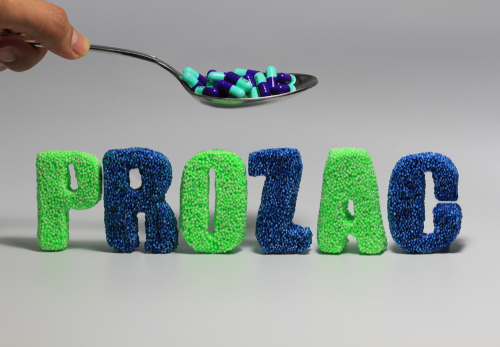|
Getting your Trinity Audio player ready...
|
Study Finds Using Prozac During Pregnancy Can Affect Fetal Brain Development
By: Ilana Siyance
A new study says that taking antidepressants such as Prozac during pregnancy can affect the unborn child’s brain development and potentially lead to them having mental health disorders later in their lives. The research, published in the journal Nature Communications on Friday, is considered the first study to give evidence of the direct impact of serotonin, a hormone present in medicines prescribed for depression, on the development of the fetus brain’s prefrontal cortex.
Per the NY Post, the research conducted by scientists at the University of Colorado Anschutz Medical Campus focused the study on the antidepressant fluoxetine — which is sold under the brand names Prozac, Sarafem, and others. The medicine is a type of Selective serotonin reuptake inhibitors (SSRIs), which works as an antidepressant by preventing serotonin from reabsorption in the brain, thereby increasing serotonin levels available to receptors.
While it is known that serotonin plays a role in the brain development, the mechanisms responsible for this influence, specifically “in the prefrontal cortex, have been unclear,” said lead study author Won Chan Oh, an assistant professor in the Department of Pharmacology at CU Anschutz. “The prefrontal cortex, the most evolved brain region, plays a central role in highest-order cognition, which is why we focused our study on finding the answer from this brain area,” Oh added.
The researchers evaluated the effect of having too little or too much serotonin on the brain development in mice. Oh and his team found that serotonin greatly influences how connections between neurons change and adapt, influencing the brain’s ability to learn and adjust. They found that disrupting these connections during early development can spur various mental health disorders later on in life. “Understanding this correlation has the potential to help with early intervention and the development of new therapeutics for neurodevelopmental disorders involving serotonin dysregulation,” Oh said.
The general recommendation has long been that fluoxetine medicines, including Prozac, are safe to take during pregnancy, based on the government’s National Institute of Health. Some studies have suggested an increased chance for heart defects or other birth defects. This study is the first proof that fluoxetine can have a negative impact on the unborn baby’s brain and mental health even later in life, per the NY Post. Oh says expectant mothers should be warned of the potential side effects of taking antidepressants. Furthermore, he warned of the risk of drug alternatives prescribed to new mothers for postpartum depression, saying that the fluoxetine can also have an adverse effect on babies being breastfed.
The new research should spur widespread concern, being that over 17% of female adults in the U.S. reported using antidepressant medications in the past 30 days, per a study conducted between 2015 and 2018. That number has likely risen significantly since the COVID-19 pandemic, with studies pointing to a general increase in anxiety and depression since 2020.
Also, Fluoxetine is prescribed to treat other disorders besides depression, including for obsessive-compulsive disorder, Tourette’s syndrome, bulimia nervosa, panic disorder, hot sweats, and post-traumatic stress disorder, among others. The research will also impact those patients.
The Prozac fact sheet says that “there is no proven risk for birth defects directly related to fluoxetine,” but adds that studies point to a higher chance for delivery before 37 weeks of pregnancy and for lower birth weight when the drug is taken in the third trimester. “Research has also shown that when depression is left untreated during pregnancy, there could be an increased chance for pregnancy complications,” the fact sheet reads. “This makes it hard to know if it is the medication, untreated depression (or anxiety), or other factors that may be increasing the chance for these complications.”





